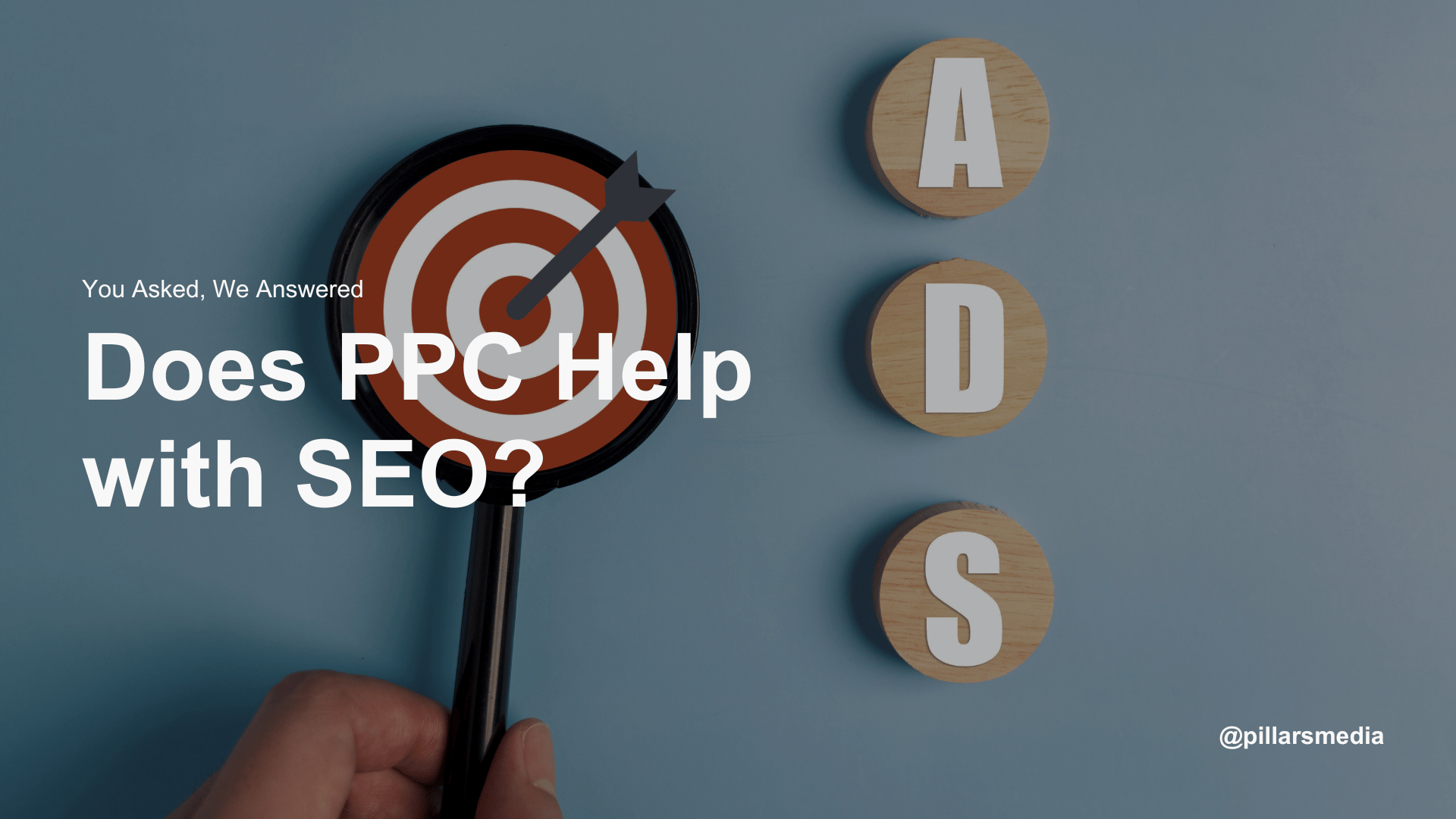Yes, but not directly. Pay-per-click (PPC) advertising doesn’t directly improve your organic search rankings, website authority, or backlinks.
However, PPC play could play an indirect (and if we might say, significant) role in enhancing your SEO efforts through brand awareness, keyword identification, and more.
Here’s what we think.
How can PPC affect your website SEO?
While PPC doesn’t influence the organic rankings of your website directly, it can still create the right conditions for your SEO efforts to succeed. Here’s how:
- PPC helps boost brand awareness
- PPC allows your team to identify more potential keywords
- PPC helps your business reach more local leads
- PPC allows your website to gain more SERP real estate
- PPC targeting high-paid-traffic keywords can impact organic CTR
1. PPC helps boost brand awareness
One of the key benefits of PPC is its ability to get your brand in front of a larger audience. When people see your ads on search engine results pages (SERPs), even if they don’t click, your brand becomes familiar.
This increased exposure means that when users see your brand organically later, they’re more likely to click through, improving your click-through rate (CTR). A higher CTR can signal to search engines that your website is relevant, which can indirectly support better rankings.
2. PPC allows your team to identify more potential keywords
Running PPC campaigns allows you to test a wide range of keywords and see which ones drive the most traffic and conversions. You can use this data to inform your SEO strategy, focusing on high-value, high-intent keywords that perform well in paid campaigns.
Essentially, PPC becomes a powerful testing ground for your SEO keyword strategy.
3. PPC helps your business reach more local leads
If you’re a local business, PPC is an excellent way to target your audience based on location. When paired with local SEO efforts like optimizing your Google Business Profile, PPC can drive more local traffic.
More local visitors can improve engagement metrics like time on site and lower bounce rates, which may indirectly benefit your SEO rankings.
4. PPC allows your website to gain more SERP real estate
PPC ads allow you to dominate the SERP by occupying both paid and organic spots. This increases the visibility of your brand and drives more traffic to your website.
Having a presence in both organic listings and ads gives users more opportunities to click on your site, which can lead to higher CTR and, in turn, better SEO performance.
5. PPC targeting high-paid-traffic keywords can impact organic CTR
When you bid on competitive, high-traffic keywords in PPC, your ad appears above organic search results. This can increase your website’s visibility for important search terms and improve brand recognition. Users who see your brand in both paid and organic results are more likely to click, improving your organic CTR over time. A higher organic CTR is a positive SEO signal to search engines.
According to research by Moz, paid search results significantly influence the organic click-through rate (CTR) for specific search queries.
“On average, paid searches across all of Google account for 2% to 3% of all clicks from search results.” – Moz.
Will PPC damage your SEO efforts?
No, PPC will not damage your SEO efforts.
A common misconception is that running PPC campaigns can somehow hurt your organic rankings or conflict with your SEO strategy. However, there’s no direct competition between PPC and SEO.
In fact, they complement each other.
As mentioned in the points above, PPC can even enhance your SEO efforts by providing keyword data, improving brand visibility, and driving traffic to your website.
Doing PPC together with SEO
Especially for newer websites, it is highly suggested to combine PPC and SEO to improve your search marketing efforts. Here’s a simple strategy on how you can use both channels effectively:
- Use PPC data to refine SEO strategy
- Target high-value keywords in both PPC and SEO
- Leverage PPC for remarketing while SEO handles first-time visitors
- Use PPC to dominate SEP real estate
- Test ad copy and meta descriptions with PPC
1. Use PPC data to refine SEO strategy
PPC campaigns offer invaluable data on which keywords drive traffic and conversions. Use this information to guide your SEO keyword research. If a keyword performs well in your PPC campaign, there’s a good chance it’ll work for SEO, too.
2. Target high-value keywords in both PPC and SEO
For competitive keywords that are difficult to rank for organically, use PPC to get immediate visibility. Over time, work on optimizing these keywords in your SEO strategy. This dual approach helps you capture traffic from both paid and organic listings.
3. Leverage PPC for remarketing while SEO handles first-time visitors
SEO is great for attracting first-time visitors. Combine it with PPC remarketing to retarget users who’ve visited your site but didn’t convert. This approach allows you to engage potential customers throughout their buyer’s journey, increasing the likelihood of conversion.
4. Use PPC to dominate SERP real estate
With PPC ads appearing at the top of the SERP and your SEO efforts improving organic rankings, you can dominate the search results. This not only increases the chances of getting clicks but also builds trust with users who see your brand in multiple places.
5. Test ad copy and meta description with PPC
PPC ads give you a chance to test different headlines and descriptions. Use this data to optimize your SEO meta titles and descriptions. If a particular PPC ad copy performs well, it’s likely that a similar version will work for your SEO meta tags.
Conclusion
While PPC doesn’t directly improve your SEO rankings, it can play a crucial role in enhancing your overall search marketing efforts.
From boosting brand awareness to providing keyword data and increasing SERP real estate, PPC offers several indirect benefits for your SEO strategy.
At Pillars Media, we specialize in Google Ads management and SEO services. Schedule a consultation with Pillars Media today and let us help you dominate the SERPs.
You Asked, We Answered
“You Asked, We Answered” is one of our content segments where we collect questions related to digital marketing, website design, leads generation, Google Ads, and more, from different platforms (Reddit, Quora, etc.), and answer them here!
We’ll be sharing a lot more on our website. If you are interested in reading more of these, let us know through our email!

